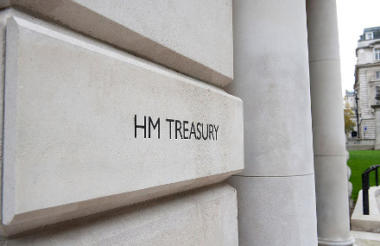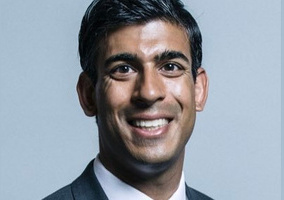#NeverMoreNeeded campaign for and emergency fund
A coalition of sector bodies working together as the #NeverMoreNeeded campaign has urged the government to create an emergency support fund to help charities that have found it harder to fundraise, but seen demand increase.
In a submission to the chancellor, co-ordinated by the Charity Finance Group (CFG), the campaign also suggests more funding for local authorities, reforms to Gift Aid and calls for more funds that are “stranded” such as the National Fund to be distributed to charities.
Hundreds of charities have signed the campaign's open letter to the prime minister. Rushanara Ali, Labour MP and chair of the all-party parliamentary group on philanthropy and social investment, backed the campaign and wrote to Sunak to call for "decisive action".
However, the minister for civil society recently indicated that it was unlikely that another general charity support package was in the works.
Increase value of Gift Aid
The Charity Tax Group (CTG) and CFG have suggested a number of tax policy changes, including a temporary increase to Gift Aid.
In their submission, which focused on five tax policy areas, they also raised the issue of irrecoverable VAT, urged the chancellor to protect business rates relief for charities and ensure Gift Aid works for the digital age.
The Gift Aid Emergency Relief campaign is led by a coalition of Charities Aid Foundation, Chartered Institute of Fundraising, CFG, CTG, NCVO, Institute of Fundraising Scotland and Scottish Council for Voluntary Organisations, Small Charities Coalition, Charity Retail Association and ACEVO, says that raising the value of Gift Aid from 20% to 25% could lead to an extra £450m for charities.
The campaign also proposes making it easier to access the Gift Aid Small Donations Scheme.
Support for community regeneration
In the autumn Sunak announced that he would make £4bn available for levelling up initiatives over the Parliament, with £600m on the table this year.
Tomorrow he is expected to announce the creation of a new £150m Community Ownership Fund. This will enable community groups to buy and run neglected local community spaces, such as pubs, post offices and football clubs. Locality has been lobbying for the creation of such a fund since 2016.
Locality, in partnership with Coops UK, the Plunkett Foundation and Power to Change, is also calling for what has previously been called the Shared Prosperity Fund, to be used to put “communities in charge”.
Community Wealth Fund
The Community Wealth Fund Alliance, co-ordinated by Local Trust, is made up of over 390 organisations, including 28 local and combined authorities, as well as national charities like the the Salvation Army and Groundwork. It is calling on the government to create a new independent endowment for “left behind” neighbourhoods.
Its campaign has been backed by the all-party parliamentary group for “left behind” neighbourhoods, which is a cross-party group of 70 MPs and members of the House of Lords.
.
The alliance is urging the government to go further than its existing commitments regarding a Levelling Up Fund. It argues that the the next wave of dormant assets from bonds, stocks, shares, insurance and pension policies, to be used to establish the Community Wealth Fund.
Paul Howell, Conservative MP for Sedgefield, said: “As co-chair of the all-party parliamentary group for ‘left behind’ neighbourhoods, I am delighted to support the Community Wealth Fund. Over the last nine months, the all-party parliamentary group has heard how these 225 ‘left behind’ communities face extra barriers to accessing education, employment, and charitable funding, among other things.
“Foundational funding investment in social infrastructure and community capacity would ensure that these neighbourhoods are able to ‘level up’ alongside the rest of Great Britain. A Community Wealth Fund, funded by dormant assets and funnelled directly into these ‘left behind’ places over the long-term, is potentially a game changer and is one way to stimulate the recovery process. I would encourage the chancellor to give this full consideration in his efforts to support the reinvigoration of these communities.”
Charity shops
The Charity Retail Association (CRA) and Charity Tax Group (CTG) said that the government is following old EU state aid rules on capping emergency grants available to charity shops, even after the EU amended those rules to become more generous. This means as many as half of the UK’s charity shops are unable to access vital lockdown grants.
They are urging then chancellor to use the Budget to resolve the problem.
#SaveSITR – ‘preserve a vital tax relief’ for social enterprises
Big Society Capital, Social Enterprise UK, Co-ops UK and Resonance have called on Sunak to “preserve a vital tax relief” and so far nearly 400 people have signed their open letter.
Social Investment Tax Relief (SITR), which can make it easier for social enterprises to attract investment, is due to expire in April 2021.
The letter says: “Analysis from Social Enterprise UK suggests that an extended and expanded SITR could help 4,000 social enterprises and create over 13,500 jobs in communities across the country. We need to use every tool in the toolbox if we are going to rebuild this country in the wake of this unprecedented economic challenge.”
Successor loan scheme
More than 30 civil society leaders have signed a letter asking that the successor loan guarantee scheme is accessible to all charities, social enterprises, and community businesses.
The government’s Coronavirus Business Interruption Loan Scheme (CBILS) closes to new applicants on 31 March 2021, extended from 31 January.
Some 33 organisations have signed a letter urgently calling on the chancellor, Rishi Sunak, to consider three main requests to support them through the pandemic.
Related articles












